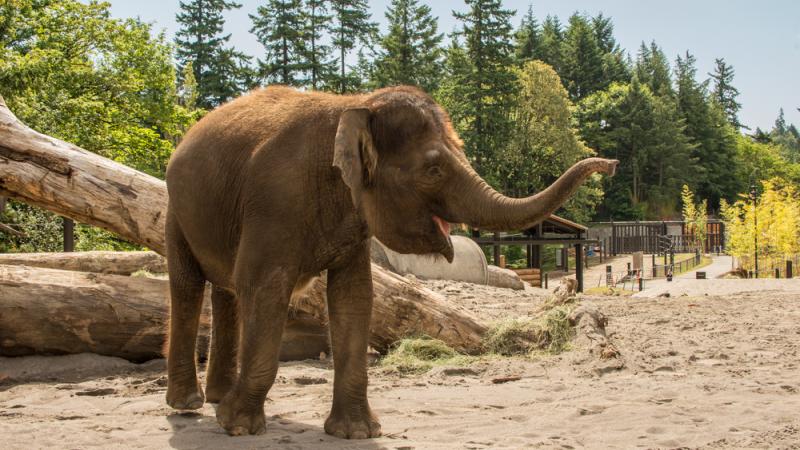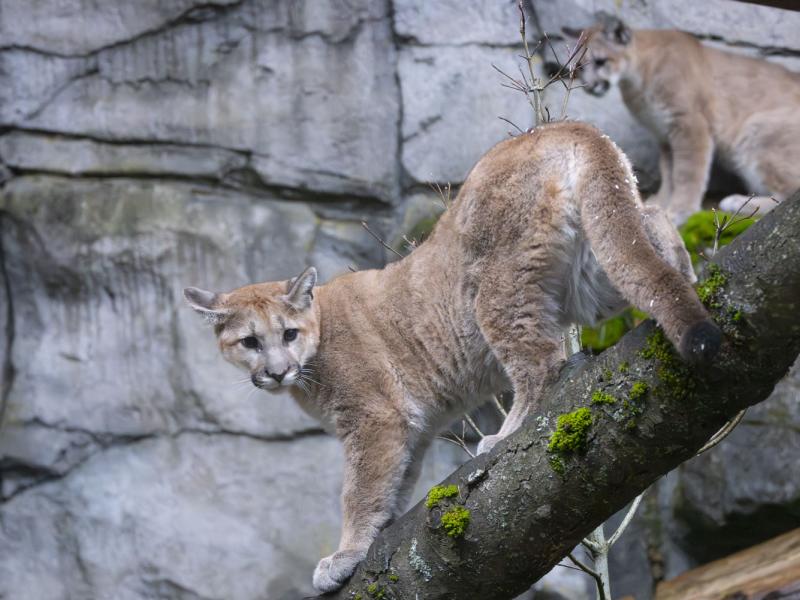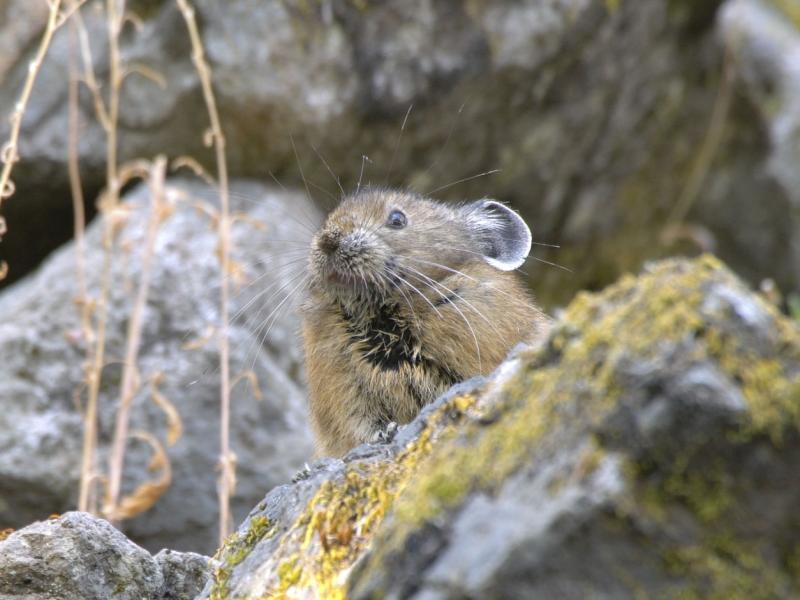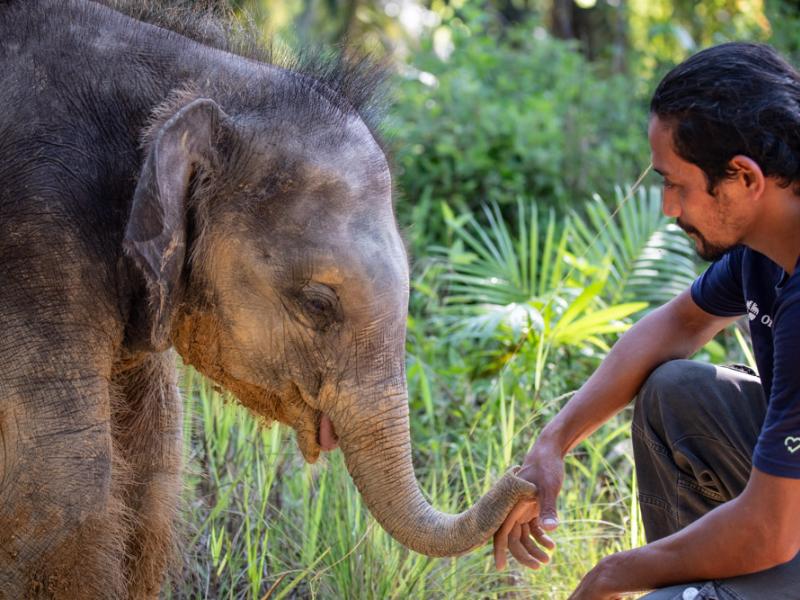The story of Oregon Zoo Borneo elephant Chendra

Chendra is an orphaned Borneo elephant
Asian elephants are under serious threat of extinction in their native range countries — and in Borneo, the situation is especially dire. The Oregon Zoo has long supported organizations working to protect Borneo's wildlife and has developed a number of conservation connections in Sabah, Malaysia. The zoo is currently funding two full-time elephant ranger positions with the Sabah Wildlife Rescue Unit and is also partnering on several projects to create wildlife corridor habitat and reduce human-elephant conflict.
The entire population of Borneo elephants has been reduced to around 2,000 in the wild, where deforestation — largely driven by logging and palm oil production — threatens their survival. Agricultural workers sometimes kill or injure elephants that raid their plantations, and the clashes can also separate calves from their herds. In the past few years, the Sabah Wildlife Department has rescued 15 baby elephants, each less than a year old. All of them were found wandering alone in known human-elephant conflict areas along the east coast of Sabah. Chendra was orphaned this way.
After being rescued, Chendra found a home at the Oregon Zoo
She was found wandering — orphaned, alone, and hungry — near a palm oil plantation. She had wounds on her front legs and her left eye, and she ultimately became blind in that eye. Because Chendra was young, she could not be reunited with her herd or released back into the wild. Malaysian wildlife officials worked to find a home, and she was brought to the Oregon Zoo to join our elephant family on Nov. 20, 1999.
The effects of Chendra's traumatic early years can still be seen. The shotgun blast that left her blind in one eye — plus weeks spent tethered to a tree before her rescue by wildlife officials — is behind her occasional "circle walking," a habit formed out of a simple need to see what's going on around her. But Chendra has found both a safe haven and a family here at the Oregon Zoo. She played a critical role as "auntie" to Samudra and Lily when they were calves.
More News

Rescued cougar cubs are venturing out
A pair of orphaned cougar cubs, rescued and brought to the zoo by Washington Department of Fish and Wildlife staff in November, have begun exploring their outdoor habitat.April 17, 2025

Zoo seeks pika watchers for summer season
The Oregon Zoo is recruiting volunteers for Cascades Pika Watch.April 15, 2025

Zoo convenes action for imperiled elephants
Sabah government representatives joined conservation NGOs, local communities, palm oil producers, and tourism operators this week in the fight to save the world’s smallest elephants from extinction.April 11, 2025

